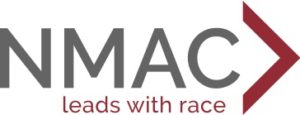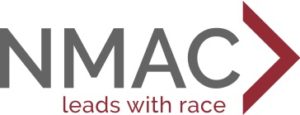 Democrats and Republicans agree that November is the most important election of our life. The future of America is at stake because the parties have such different visions for our country. I don’t know about you, but the pressure of this election combined with COVID and the push and pull for racial justice has me stressed out and overwhelmed. I feel angry, depressed, confused, or some combination of these emotions. Yet I am one of the lucky ones because I still have a job and a safe place to live. While I don’t want to seem ungrateful, COVID fatigue seems to be winning and that has me scared.
Democrats and Republicans agree that November is the most important election of our life. The future of America is at stake because the parties have such different visions for our country. I don’t know about you, but the pressure of this election combined with COVID and the push and pull for racial justice has me stressed out and overwhelmed. I feel angry, depressed, confused, or some combination of these emotions. Yet I am one of the lucky ones because I still have a job and a safe place to live. While I don’t want to seem ungrateful, COVID fatigue seems to be winning and that has me scared.
 Against the backdrop of the fall election, COVID-19 and massive unemployment, there is a call for racial justice and Black Lives Matter. This is the fight of NMAC’s life and mission. Our long and historic commitment to health equity and racial justice will play itself out starting this fall with employment. To NMAC, employment is racial justice. Our movement has hundreds of millions of dollars in new funding to end the HIV epidemic. This funding should translate into tens of thousands of new jobs. At a time when so many are unemployed, this funding can be a lifeline to communities who are hurting. It becomes an issue of racial justice because NMAC is calling on employers to hire the communities that are most impacted by HIV. Unfortunately, this means communities of color.
Against the backdrop of the fall election, COVID-19 and massive unemployment, there is a call for racial justice and Black Lives Matter. This is the fight of NMAC’s life and mission. Our long and historic commitment to health equity and racial justice will play itself out starting this fall with employment. To NMAC, employment is racial justice. Our movement has hundreds of millions of dollars in new funding to end the HIV epidemic. This funding should translate into tens of thousands of new jobs. At a time when so many are unemployed, this funding can be a lifeline to communities who are hurting. It becomes an issue of racial justice because NMAC is calling on employers to hire the communities that are most impacted by HIV. Unfortunately, this means communities of color.
It is not enough to put out a statement supporting Black Lives Matter. Now our movement needs to turn that commitment into real jobs and leadership positions. That’s why this year’s United States Conference on HIV/AIDS will have a Jobs Fair and why we made the conference free for community. People are hurting and the conference is free so they can connect with the organizations and health departments that have jobs.
In Washington, September is usually the time when Congress comes back to work out the final details for the upcoming federal budget. This budget is critical to our movement’s ability to provide services for people living with HIV, reduce the transmission of HIV and to end the epidemic by 2030. As with most presidential election years, the 2021 federal budget will probably be a continuing resolution (CR) until after the election.
The pundits have already started the Washington chess game of “what happens if.” Zoom calls between national leaders talking about what happens if President Trump wins reelection. What happens if Joe Biden wins? One of my zoom calls is looking for ideal candidates to fill vacancies in a new administration, another is looking for strategies to deal with administration officials who get another term.
We are probably going to have a virtual inauguration. I’m not sure what that looks like, since it’s never happened. America is so divided that regardless of who wins, there will be protests and governing will be next to impossible. The 2021 inauguration happens as we hit the second peak of COVID-19 combined with the flu where some models have over 300,000 deaths.
 The unknown in this calculation is a vaccine. While I am very hopeful, I believe the first iterations of the COVID-19 vaccine will only be partially effective. Is a partially effective vaccine enough to turn around the economic devastation that this virus has caused? Would you be willing to travel with a vaccine that is 50% effective? If not 50%, what is the percentage that would give you confidence and how long will it take to find that vaccine?
The unknown in this calculation is a vaccine. While I am very hopeful, I believe the first iterations of the COVID-19 vaccine will only be partially effective. Is a partially effective vaccine enough to turn around the economic devastation that this virus has caused? Would you be willing to travel with a vaccine that is 50% effective? If not 50%, what is the percentage that would give you confidence and how long will it take to find that vaccine?
All of this is happening while wearing masks and staying six feet from friends and family. Is it any wonder why so many are angry, depressed, and confused and why people are taking to the street to protest? How do you survive? I feel fortunate to be part of the HIV community. We’ve seen loss, suffering, and pain and continued to fight. We’ve experienced stigma, discrimination, and outright hatred and flourished. Our ability to build and create new institutions to address the HIV epidemic is proof of our reliance and power. We are magnificent amazing humans who have survived and thrived in a world that hates us just because of the color of our skin, who we love, our gender or gender identity. Fuck you, COVID-19!
NMAC


 Transparency is important because too many people don’t trust people in power, particularly people in government. Black Lives Matter is calling for a new accountability when spending the public’s money. If we are going to build an HIV movement that is committed to racial justice, then it starts with being transparent about the money. Money is power and we need to monitor how HIV funds are being spent.
Transparency is important because too many people don’t trust people in power, particularly people in government. Black Lives Matter is calling for a new accountability when spending the public’s money. If we are going to build an HIV movement that is committed to racial justice, then it starts with being transparent about the money. Money is power and we need to monitor how HIV funds are being spent. Just as I requested that the CDC be transparent with the money they are keeping, I also think it is important for health departments to be transparent. While the vast majority are great, there are some health departments that keep too much of the money. After all these years fighting HIV, we know that community, particularly people living with HIV/AIDS, are core to the solution.
Just as I requested that the CDC be transparent with the money they are keeping, I also think it is important for health departments to be transparent. While the vast majority are great, there are some health departments that keep too much of the money. After all these years fighting HIV, we know that community, particularly people living with HIV/AIDS, are core to the solution. Nearly 250 people have registered for our August 13th Webinar with Raniyah Copeland from the
Nearly 250 people have registered for our August 13th Webinar with Raniyah Copeland from the 